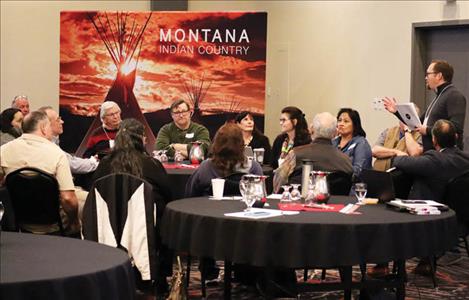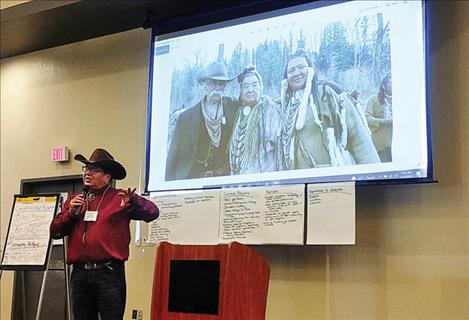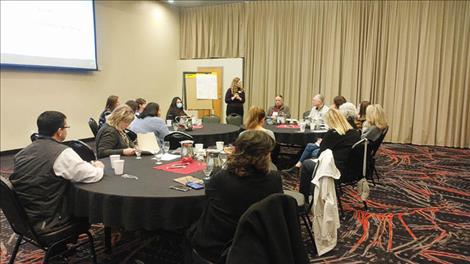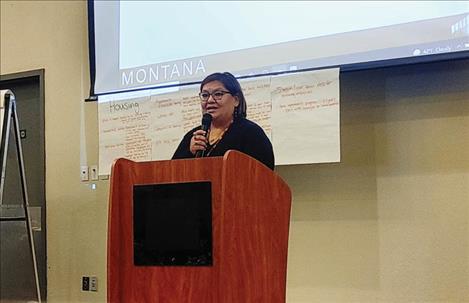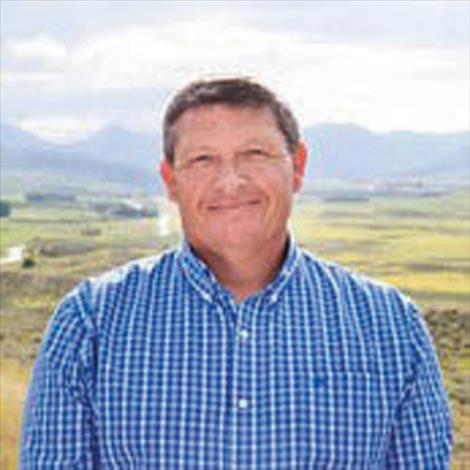Community gathers for economic development event
Hey savvy news reader! Thanks for choosing local.
You are now reading
1 of 3 free articles.
POLSON — The Confederated Salish Kootenai Tribes sponsored an event on March 21, bringing together tribes from all over Montana to discuss economic development throughout the state.
Held by the State Tribal Economic Development Commission (STEDC), presenters including participants from the Office of Indian Country Economic Development explained their mission to help tribes throughout Montana benefit from stronger economies via multiple committees set up to help. Their funding committee, for example, compiles sources of state and federal funding for economic development.
STEDC can help tribes apply for Tribal Business Planning Grants (TBPG), funds that are only available to tribal businesses for preliminary planning, including business plan development, market analysis, and feasibility studies. The Montana Indian Equity Fund is also available for tribal businesses, offering around $40,000 per tribe. Two businesses that were recent recipients of the equity fund, the Blue Bay Trading Post and Total Screen Design of Polson, shared what each did with the funds they had received, from making physical improvements to the operations of their businesses to keeping staff hired during the worst of the pandemic. Additionally, the committee is gathering a list of grant writers to help tribes apply for various funding sources. More information can be obtained by contacting STEDC.
The meeting broke into four sections to discuss important economic elements impacting every tribe in the state: tourism, housing, infrastructure, and land and natural resource use. These smaller groups allowed attendees to share their concerns, solutions, and ideas from their different perspectives and situations. After each group met, the meeting reconvened to share what had been discussed.
The tourism group, led by Dacia Whitworth of Salish Kootenai College, shared several ideas for projects, from potential guided tours of the Bison Range now that it’s been returned to tribal management to collaborating with Glacier Country in both marketing and camping reservations. The importance of educating visitors in ethical tourism to help avoid exploitation was also emphasized. Ideas included clearer indicators for entering and exiting tribal land, as well as creating more events to guide tourists to acceptable locations for their visits. A sign-up sheet was shared among participants for sharing ideas and information, as well as creating space for each other on websites for future collaboration.
The land use and natural resource planning group, led by Rich Janssen of CSKT Natural Resources, shared their take on both the importance of infrastructure and food sovereignty. As the country seems to have moved away from local food production, new ways to inspire the next generation of food producers must be addressed. Popularizing alternative food storage to canning, such as pressurized dry methods, creating a cooperative at which people can sell their homegrown foods, and coming up with a project larger than a community garden could all contribute to capturing the next generation.
Another key issue this group brought up was the need for increased parking and bathrooms everywhere. People parking en masse on the side of the roads, and relieving themselves in common spots on lake islands, has a significant impact on the local environment and ecosystem. An additional proposed solution was to add more guides and outfitters to help people recreate in a more concentrated way, rather than “everybody everywhere.”
The presentation by the infrastructure group, led by CSKT Executive Officer Rick Enease, touched on similar topics, but also highlighted the importance of relationship infrastructure throughout the state. A web of connections is needed, the said, as current parties are both missing opportunities to collaborate and accidentally stepping on each other’s toes. Creating some sort of workforce coalition to help coordinate funding, carry out projects, and improve efficiency across the board was proposed. Polson City Manager Ed Meece, who participated in this group, offered to coordinate a future meeting between parties to help make the idea a reality.
Finally, the housing group, led by Jody Perez of the Salish and Kootenai Housing Authority, shared current efforts. The Flathead Reservation, it was discovered, has never had an official needs assessment. Therefore, the housing authority is now working with a company from Seattle and the newly created Flathead Housing Coalition to take a survey of 920 households on the Reservation to assess homelessness, quality, and needed availability.
A collaboration has also been proposed between the housing authority and Salish Kootenai College, as well as with local business owners, to improve both college attendance and workforce retention in the area. Working with local governments to amend zoning regulations is another proposed solution to improve housing availability for mixed income and tribal and non-tribal members alike.
One common thread addressed by all participants was the difficulty in finding the time and capacity to do more than what is already being done. A key solution they all seemed to find was collaboration. Creating a master list of participants, connecting on each other’s websites, and spotlighting different tribes doing interesting things were all proposed. Shared responsibility and community effort seemed to be the agreed way forward.
“We need to follow all of this up with action,” presenters expressed in closing remarks. “We want to make this place we call home better for all of us.”
To learn more and find out how to get involved, visit the STEDC website at https://marketmt.com/Programs/Business-Assistance/Indian-Country-Programs/State-Tribal-Economic-Development-Commission.















